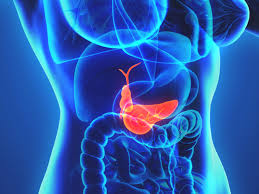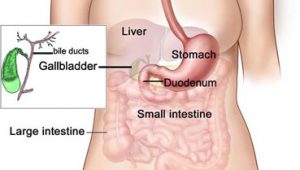CALL TODAY 646-846-1136 | EMAIL
Gallbladder and Gallstone Surgery – NYC General Surgeon
Gallstone and Gallbladder Surgery: Steps, Benefits, Side-Effects, Precautions & Prognosis
 Gallstone and gallbladder surgery referred to as cholecystectomy in medical parlance, is an operative procedure where your gallbladder is removed. Gallbladder surgery is chiefly performed to get rid of gallstones or cholesterol stones which if not removed could lead to severe complications like cholangitis, pancreatitis, and cholecystitis. Gallbladder deletion or excision is the best solution if this biliary-tract organ becomes swollen (cholecystitis) or infected or if you’re diagnosed with biliary dyskinesia (compromised outflow of bile), choledocholithiasis or pancreatitis.
Gallstone and gallbladder surgery referred to as cholecystectomy in medical parlance, is an operative procedure where your gallbladder is removed. Gallbladder surgery is chiefly performed to get rid of gallstones or cholesterol stones which if not removed could lead to severe complications like cholangitis, pancreatitis, and cholecystitis. Gallbladder deletion or excision is the best solution if this biliary-tract organ becomes swollen (cholecystitis) or infected or if you’re diagnosed with biliary dyskinesia (compromised outflow of bile), choledocholithiasis or pancreatitis.
Cholecystectomy is the most popular and preferred treatment mode of doing away with gallstones as these do not resolve or dissolve as a matter of course. You know that you’re due for surgery when you suffer from acute abdominal pain, nausea, vomiting, flatulence, fever or jaundice.
Surgery Types & Methods
In very rare circumstances, gallstones can be melted away or resolved by making dietary changes like reducing consumption of fatty foods or taking certain medications. However, these strategies are, for the most part, ineffective if the stones are sizable. For nearly 80% of individuals with gallstones, surgery is the best and the only alternative.

There are primarily three surgical procedures that surgeons carry out for gallstone elimination: cholecystectomy (gallbladder resection), ERCP (endoscopic retrograde cholangiopancreatography), and cholecystostomy (drainage of the bladder).
- Cholecystectomy is the most widely used technique for clearing away cholesterol stones. Two types of gallbladder surgery are in vogue-laparoscopy (keyhole surgery) and open surgery. The laparoscopic operation is more popular in comparison to the open surgery mode because of the former’s inherent benefits.
- The open surgical method is resorted to especially when anatomical issues are resulting from previous gastrointestinal surgeries, like the presence of scar tissues. Though it takes roughly 1-2 hours for performing both the types of operation, open surgery entails a longer stay in the hospital and an extended recovery period, largely because of the wider opening.
- In ERCP, an endoscope is inserted into the small intestine via the esophagus for dealing with an obstructed common bile duct. Surgical tools are slotted in together with the endoscope for correcting the constricted or blocked sections of CBD once the gallbladder is excised. Often, it may not be possible to conduct surgery on some patients.
In these circumstances, the excess bile is drained away from the bladder with the help of a catheter. Nevertheless, these patients will have to consider surgery in the long run.
Benefits
Opting for a laparoscopic or open gallbladder surgery has its benefits. Removing a diseased or contaminated bladder ensures that you’ll be able to get back to leading a normal life quickly. Choosing laparoscopic intervention ascertains that your hospital stay will be shorter-you may be discharged on the very day the operation is performed. Also, the recuperation will be faster compared to open surgery.
The chances of the complications returning or recurring are also very slim once the surgery is done.
Side Effects
- Bleeding
- A hernia
- Blood clots
- Heart attack or stroke
- Wound infection
- Abdominal swelling
- Allergic reactions from general anesthesia
- Bile leakage
- Pneumonia
- The possibility of damage to organs surrounding the gallbladder
Precautions
- Cleanse and dress the incision area periodically
- Walk as much as you can to prevent thrombosis
- Wear loose fitting clothes so that the incision is not abraded against
- Follow the dietary chart prescribed by the surgeon
- Take all medications on time and complete the course
Prognosis
 As far as the short-term prognosis is concerned, the success rate of bladder operations is excellent. The kind of surgery you go for determines the recuperation period. You’ll experience mild postoperative pain if laparoscopy is involved. Talking about the long-term scenario, you’re less likely to suffer from the complications you had before the surgery.
As far as the short-term prognosis is concerned, the success rate of bladder operations is excellent. The kind of surgery you go for determines the recuperation period. You’ll experience mild postoperative pain if laparoscopy is involved. Talking about the long-term scenario, you’re less likely to suffer from the complications you had before the surgery.
Concluding Remarks
Laparoscopic or open surgery is the feasible option for getting relief from complications or issues related to the gallbladder. For more details about this treatment option and to evaluate if this is the right stage to get this treatment, we advise you to fix an appointment with one of our specialists for consultation.
References
- https://www.hon.ch/HONselect/Selection/E04.html
- https://www.healthline.com/health/gallbladder-removal-open#outlook
- https://www.healthline.com/health/gallbladder-removal-laparoscopic#follow–up
- https://www.uofmhealth.org/health-library/hw106860
- https://www.webmd.com/digestive-disorders/surgery-for-gallstones#1
- https://www.sages.org/publications/patient-information/patient-information-for-laparoscopic-gallbladder-removal-cholecystectomy-from-sages/
- https://www.everydayhealth.com/gallbladder/surgery-what-expect/

